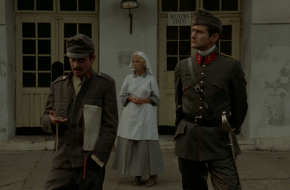It’s Quite True!
A painted animation film. A funny but true story of a certain gossip.
The plot takes place in the suburbs of Kurze Miasteczko (Hen Town), which serves as a metaphor of the human world. Although the hens live their hen life and instead of buildings there are henhouses along the streets, their behaviours give a grotesque view of human reactions and emotions related to spreading a gossip.
The plot takes place in the suburbs of Kurze Miasteczko (Hen Town), which serves as a metaphor of the human world. Although the hens live their hen life and instead of buildings there are henhouses along the streets, their behaviours give a grotesque view of human reactions and emotions related to spreading a gossip.

Jacek and Placek
A feature-length (digitally restored) animated film based on Kornel Makuszyński’s novel “The Two Who Stole the Moon”. In the small town of Zapiecek a pair of twins is born: Jacek and Placek. The boys are not eager to work. They dream of finding a land where you do not have to work. Soon, they run away from the town to look for such a place. On their long journey they have lots of adventures...

Karbala
April 2004, Iraq. On the Day of Ashura the militia of the Shiite cleric
Muktada As-Sadr, supported by the jihadists, start an uprising in the
Polish stabilization zone. The US command orders the Poles to hold the
City Hall, the seat of the local authorities and police, loyal to the
stabilization forces.
Captain Kalicki’s reconnaissance company takes over recruits from the country, paramedic Kamil Grad among them. On the way to the base the company enters into an ambush. At Kalicki’s request Kamil is accused of failure to render aid to a wounded comrade during the action and is transferred to the City Hall for questioning. On the next day Kalicki’s company arrives at the City Hall with the task of holding the building for the first 24 hours.
Kalicki, his soldiers and Kamil, cut off from the world in rebellion-striken Karbala, will take part in the largest battle that Polish soldiers have fought since World War II.
Captain Kalicki’s reconnaissance company takes over recruits from the country, paramedic Kamil Grad among them. On the way to the base the company enters into an ambush. At Kalicki’s request Kamil is accused of failure to render aid to a wounded comrade during the action and is transferred to the City Hall for questioning. On the next day Kalicki’s company arrives at the City Hall with the task of holding the building for the first 24 hours.
Kalicki, his soldiers and Kamil, cut off from the world in rebellion-striken Karbala, will take part in the largest battle that Polish soldiers have fought since World War II.
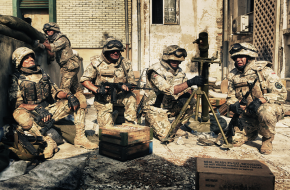
Karski & The Lords of Humanity
The film by the outstanding documentary director, Sławomir Grünberg, which combines unique archival materials and animated sequences, tells the story of Jan Karski.
Jan Karski (actually Jan Kozielewski) set out to Great Britain in autumn of 1942 and then on to the USA to present a report on the condition of the Polish Underground State and primarily to inform the international community about the disastrous situation of Jews under German occupation. Before his departure, Karski made it inside the ghetto twice and also to the transit camp in Izbica Lubelska. He passed the shocking account of an eyewitness on to American and British politicians, journalists and artists. However, the dramatic appeals of the emissary to save the Jewish nation proved to no avail.
Jan Karski (actually Jan Kozielewski) set out to Great Britain in autumn of 1942 and then on to the USA to present a report on the condition of the Polish Underground State and primarily to inform the international community about the disastrous situation of Jews under German occupation. Before his departure, Karski made it inside the ghetto twice and also to the transit camp in Izbica Lubelska. He passed the shocking account of an eyewitness on to American and British politicians, journalists and artists. However, the dramatic appeals of the emissary to save the Jewish nation proved to no avail.
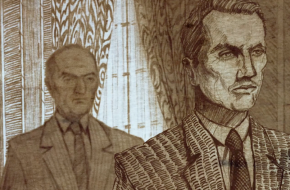
Knife in the water
A sports journalist and his wife plan to spend a Sunday on their yacht.
On their way to the marina they give a ride to a young hitch-hiker. On
the boat the two man start playing a game which reveals, that contrary
to appearances – the self-confident 40-year-old conformist and the
20-year old rebel - are both alike and unified in the same desire for
power, subjugation and the urge to possess. The woman wants her piece of
cake too…
Roman Polanski’s legendary directorial debut, surprises with the precision of its screenplay, the maturity of directing, the masterful mise-en-scene (that Polanski owes partly to his DoP Jerzy Lipman), and leading the actors. Plus the atmospheric score by Krzysztof Komeda in the background.
Roman Polanski’s legendary directorial debut, surprises with the precision of its screenplay, the maturity of directing, the masterful mise-en-scene (that Polanski owes partly to his DoP Jerzy Lipman), and leading the actors. Plus the atmospheric score by Krzysztof Komeda in the background.
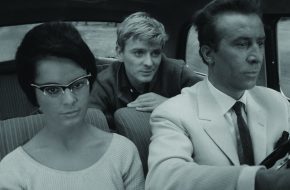
Knife in the water
A sports journalist and his wife plan to spend a Sunday on their yacht. On their way to the marina they give a ride to a young hitch-hiker. On the boat the two man start playing a game which reveals, that contrary to appearances – the self-confident 40-year-old conformist and the 20-year old rebel - are both alike and unified in the same desire for power, subjugation and the urge to possess. The woman wants her piece of cake too…
Roman Polanski’s legendary directorial debut, surprises with the precision of its screenplay, the maturity of directing, the masterful mise-en-scene (that Polanski owes partly to his DoP Jerzy Lipman), and leading the actors. Plus the atmospheric score by Krzysztof Komeda in the background.
Roman Polanski’s legendary directorial debut, surprises with the precision of its screenplay, the maturity of directing, the masterful mise-en-scene (that Polanski owes partly to his DoP Jerzy Lipman), and leading the actors. Plus the atmospheric score by Krzysztof Komeda in the background.

Laughter in the Dark
A toxic relationship between an older man and a younger woman. Negative
emotions are released sparking a series of unexpected events that will
affect others around them.
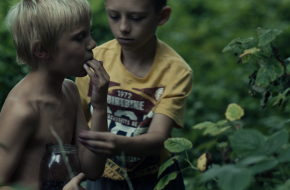
Lesson of the Dead Language
Fall 1918. Lieutenant Alfred Kiekeritz, discharged from the military
field hospital, is transferred - as a commandant - to the Galician town
of Turka. An aesthete, ill with TB, he is well aware of his impending
death and by obsessive thinking and talking about it, he is trying to
give meaning to his fading life, for instance by collecting beautiful
objects.
One of the best films in the director's output and another of his works portraying the image of a vanishing world. A story about death, about a man dying and the fading of an era - and also, about the absurd.
One of the best films in the director's output and another of his works portraying the image of a vanishing world. A story about death, about a man dying and the fading of an era - and also, about the absurd.
